The Men of the Frank Family, Part III: Post-War Resilience
- Mattan Segev-Frank

- Jun 12, 2025
- 15 min read
In this third and final installment of the Frank family saga, we delve into tales of resilience and reinvention in the aftermath of World War II. Join me as I uncover how Tamás Frank navigated a new life in Brazil, the unexpected turns his parents and relatives faced in a changing Europe, and the poignant reunions that spanned continents. This chapter sheds light on the enduring spirit of a family determined to rise above the turmoil and traumas of the past and thrive as best they can in an uncertain future.
Tamás Frank was planning to flee Hungary with his girlfriend, but eventually, for some reason, on the 12th of February 1956, he fled Hungary on his own. He left his estranged wife Zsuzsanna and their 3.5 years old son behind and succeeded crossing the border and getting to Vienna, Austria. There, his cousin Manzi Ungar’s and her husband Rudi assisted him in the arrangements and the procedures for immigrating out of Europe. Later in life, Tamás shared that he wasn’t sure if he should immigrate to Israel and join his brother, or to go the complete other way and move to Brazil.
On the 4th of April 1957 in Vienna, Tamás was issued a passport with the number 1763. In June, 1957 he appeared on a list titled “Nominal roll of Hungarian refugees departing from Vienna to embark on SS “Provence” ex Genoa on 19 June 1957 for Rio de Janeiro, Brazil”. He arrived to Rio De Janeiro, Brazil on the 4th of July 1957, and a month later he is listed on an immigration card from São Paulo, Brazil dated 16 August 1957
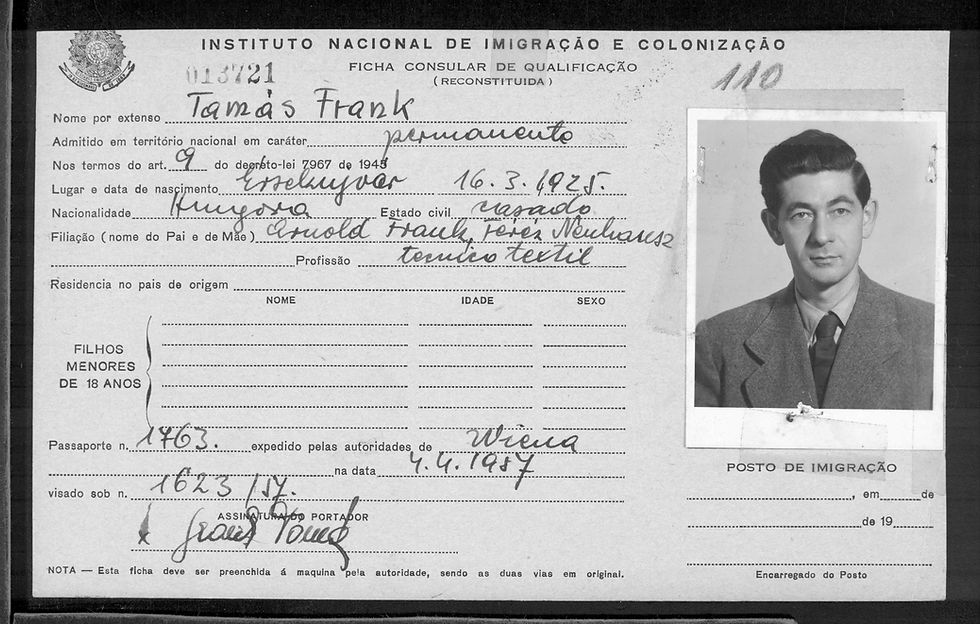
The ballad of Terezia Frank
Terezia Frank née Neuhausz's family history wasn't an easy one. Her mother passed away before she got to her 4th birthday, so she and her sister Friederike were raised by their father Leopold Neuhausz with help from their maternal grandfather Moritz Schwitzer and his 2nd wife, their paternal aunt Antonia Schwitzer née Neuhausz. After World War one, she lost them all - Grandfather Moritz died in late 1919, aunt Antonia in late 1920, and father Leopold died on the 4th of May 1921 (all in Nové Zámky). Her sister Fritzi moved to Budapest, where she married Anzselm Richter in 1923, and Terezia only had her new family unit with nothing to tie her to the place she always lived in.
She was a member of the Nové Zámky chapter of WIZO (the Women's International Zionist Organization) as early as 1927, which indicates she was a supporter of the Jewish people's right to return to their indigenous land of Israel, then British Mandate Palestine. However, she did not get to immigrate to Israel because of her husband Arnold's refusal to, which ultimately resulted in them having to suffer World War 2.
As Survivors, they moved back to Arnold's hometown Palárikovo, and settled down in the house previously owned by Arnold's brother Viliam Frank and his wife Aranka, who went missing during the war. Their two sons fled Europe - Juraj (now going by his Hebrew name Yehuda) was sent with the "Youth Aliyah" project to Palestine in September 1939 and evaded the war, while Tamás survived the war traumatized, and wanted to get as far as possible from Europe, and immigrated to Brazil.
in Palárikovo, the communist regime took over and life became harder and harder. They were limited to living in a small part of their house, and were forced to take in new residents into the rest of the house. A new shop was opened in the front part of the house, and a large part of the building became a woodsaw, where Arnold oversaw the chopping of wood for woodfire. Arnold was in charge of supplying the villagers with firewood and coal, and was officially employed by the state company "Bratislava coal mining company", as was custom in the communist days.
Terezia was a gracious and respectable housewife, who both assisted Arnold in his work, and was a talented cook and stylish woman. She suffered from high blood pressure, and from time to time they would go to thermal baths for spa retreat, to help reduce her condition.
Then things took a turn for them, yet again. In 1958-9, Arnold, then 70 years old, was imprisoned for half a year by the communist regime under the pretense of “damaging the chain of supply of coal to the villagers of Palárikovo”. This time naturally placed Terezia in a super stressful situation, full of worries and fear. Two months after Arnold was finally released on the 1st of May 1959, he and Terezia went on a spa trip to Rybáre-Sliač. During this trip, Terezia passed away in her sleep on the 28th of July 1959.
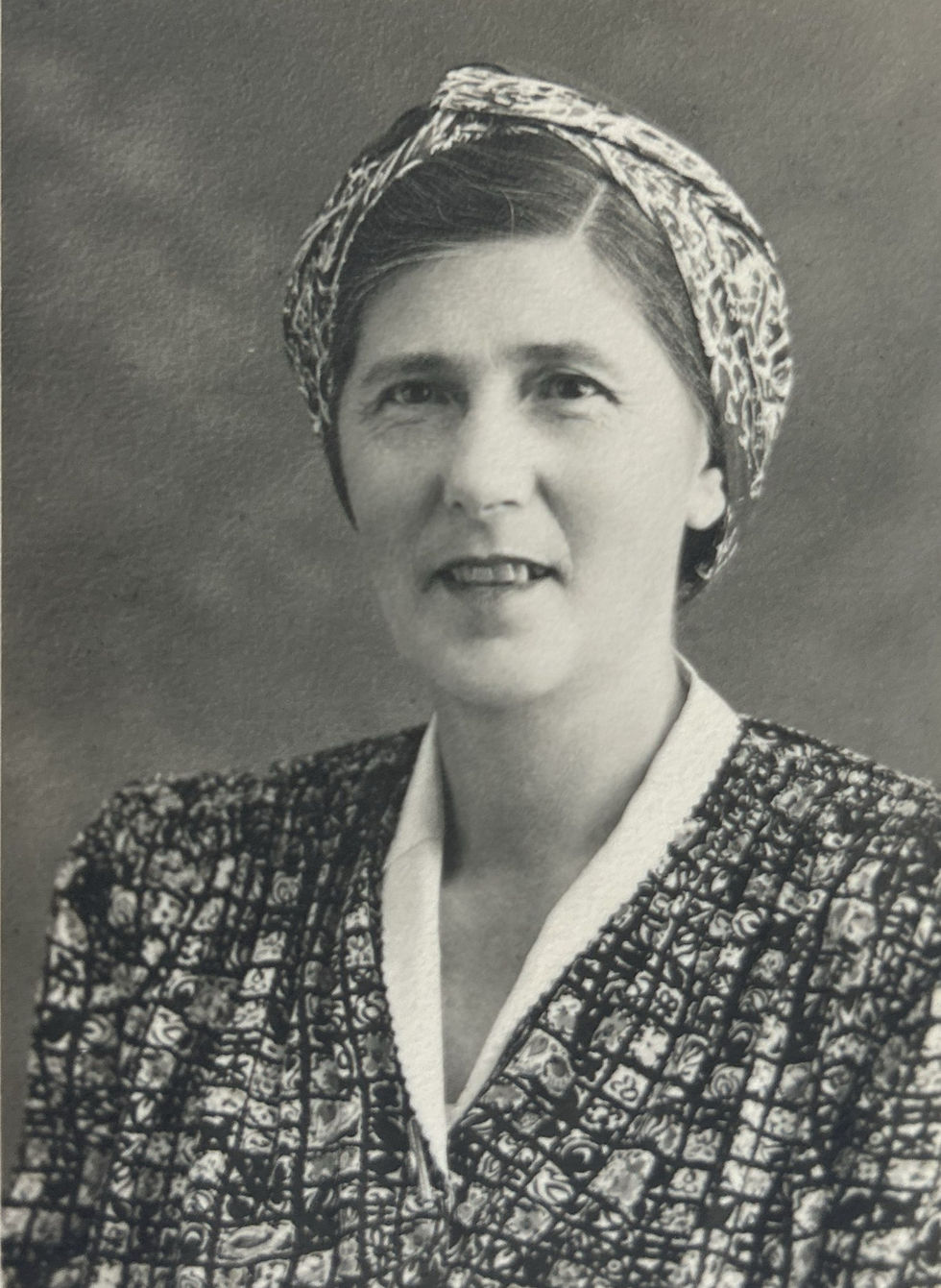
Besides his personal grief, Arnold was faced with a dilemma regarding the burial arrangements, which required some quick decision making. He decided that since they were the very last Jews in Palárikovo, burying his beloved Teri there would mean that no one would ever visit her. Furthermore - during the last decade he saw the communist regime's incessant initiatives to ruin Jewish synagogues and cemeteries for false pretenses (just a few examples - the famous synagogue of famous rabbi Moses Schreiber in Bratislava was demolished because a bridge simply "had to" be constructed through it, the old Jewish cemetery in Nové Mesto nad Váhom had to be demolished for a park, and the Jewish cemetery in Petržalka as well) so who says a small place like Palárikovo wouldn't ruin it's Jewish cemetery once the last Jew is not there to fend for it? Instead, Arnold had Terezia's body transported to Bratislava, and had her buried in the large Neolog cemetery on Žižkova street, which seemed in less of a danger and was closer to the few remaining relatives.
Soon after, Arnold became ill himself. He underwent surgery, and as soon as the initial healing was over - immigrated to Israel on the 18th of October 1960, where he joined his son Yehuda in Sha’ar Ha’golan, a Kibbutz near the Sea of Galilee, which stands right on the meeting point between Israel, Syria and Jordan.
Before leaving, Arnold asked the doctor in Bratislava to give him his medical file in English. The doctor did that, without explaining the exact diagnosis to him. When he got to Israel and asked Yehuda to get him treatment in the Kibbutz - Yehuda, who never learned English, gave the paperwork to Dr. Fischer, the medical doctor of the Kibbutz. The doctor assumed Yehuda was aware of the diagnose listed on the papers he himself supplied, and so never explained to Yehuda that Arnold was actually diagnosed with Colon Cancer.
After settling in Israel, Arnold could communicate with the Hungarian and Slovak speakers in the Kibbutz. Communication with his grandchildren was mostly done through Yehuda’s translation. Arnold loved Israel and repeatedly said “What an idiot I was for refusing to immigrate here. We should have done it long ago!”. He loved bringing joy to his grandchildren, which he learned is easy to achieve by bringing them ice cream from the nearby town Tiberias. In the extremely high temperatures of the area, he would store the ice cream in a thermos and go by bus or by hitchhiking to Tiberias and back.
The children of Sha’ar Ha’Golan loved Arnold despite the language barrier. He would meet them in the Kibbutz’s small “animal corner”, where, amongst other animals, they had a goat. The attendants would milk the goat and throw its milk away. Arnold offered to take the milk and make cheeses for the kids, and they became his biggest fans in return. Hopping over to “Grandpa Arnold” became a morning ritual for many cheese-loving kids.
Meanwhile, in Budapest...
Four years after Tamás’ disappearance from Budapest, his estranged wife Zsuzsanna née Elek filed a request for the Hungarian court to declare her divorced. Her request was granted, and they were officially divorced on the 21st of April 1961. Despite her anger with Tamás, she remained in contact with his uncle Artur and his wife Klári, and visited them every two or three months with her son, so he would have a connection to his father's family. She never remarried, and passed away in Budapest on the 20th of February 2013, and is buried in the non-Jewish Cemetery on Fiumei Road in Budapest.
As for uncle Artur, after somehow surviving the war without losing his money and assets, he was hit hard by the communist regime in Hungary. His properties and company were confiscated, and he faced financial hardships after losing all his real-estate besides the one apartment he was living in. As was the case with many Jewish families, help arrived from within the large pool of family ties. In Artur's case - his niece Manzi Ungar told me over Heering Cherry - Artur had helped everyone in the family as long as he could, so when the communist regime stripped him from everything he had – she and her husband Rudi were glad to return the favor and help him back in his old age, when he needed it. Artur eventually passed away in Budapest on the 25th of December 1969, and as a form of gratitude, left his antique Victorian furniture, special carpets and much more to Manci.
Tommy's new life in Brazil
Following Tamás’ immigration to Brazil, Rudi Ungar continued to help him start his new life as well. Rudi, the owner of Viennese department store “Neue Mode” on Vienna’s shopping street Mariahilferstraße No. 22-24, shipped textile machines to Tamás in Brazil, so he could start a new life. Tamás sold those machines and lived off the money until he found a job with the help of the Hungarian community there.
In Brazil, Tamás found a job with the Italian tire manufacturer Pirelli S.A in the city of Santo Andre, Brazil. In the beginning, he spoke very little Portuguese but with time and immersion to the language he learned more and spoke quite well, with his own unique accent. However, he never wanted to learn English or to visit the United States.
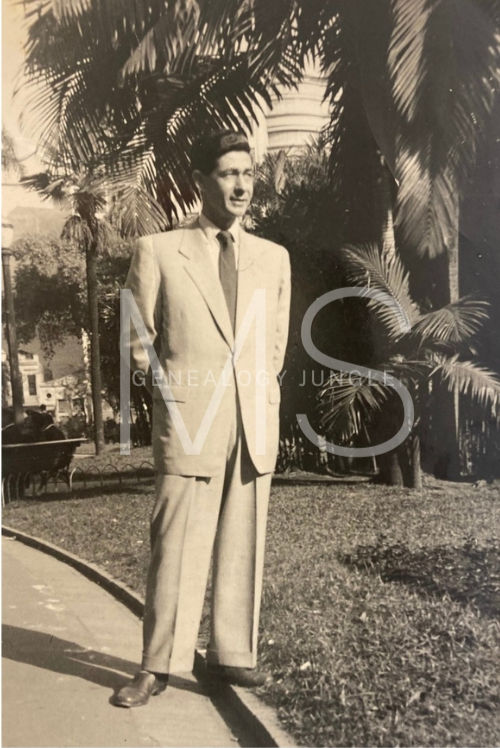
He found Hungarian speaking friends with whom he played Bridge. One of them was Med. Dr. László Bard, a Hungarian physician of Jewish background. When antisemism in Hungary started raising its head, Dr. Bard and his wife decided to convert to catholisism, hoping that this would keep them safe, but as things got worse, the family succeeded to immigrate to Brazil before WW2 broke out.
Dr. Bard introduced Tamás to his daughter Anikó, who was born in Budapest on the 2nd of November 1934 and was raised as Roman Catholic. They met in São Paulo, Capital. Shortly after the court in Hungary terminated his first marriage, Tamás married Anikó Klara Terezia Bard, daughter of László Bard and Gabriella née Jünker, on the 21st of September 1961 in São Paulo, Brazil. In order to marry Anikó, Tamás officially converted to Catholicism. However, he never practiced any religion. Tamás and Anikó lived in Gardins, a neighborhood in São Paulo.
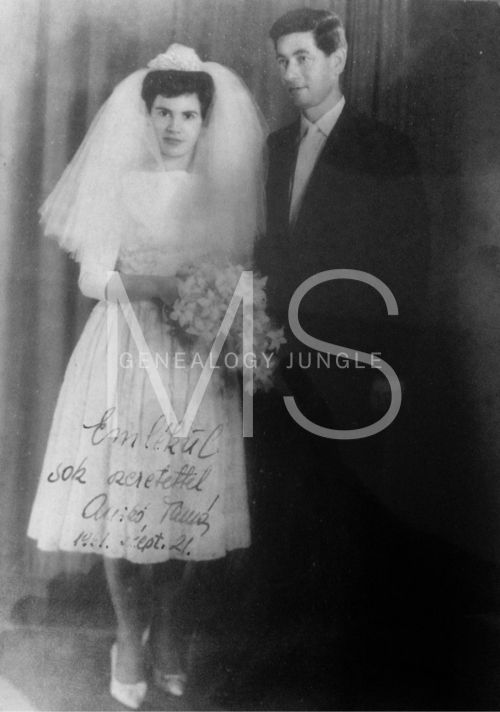
One last Frank siblings reunion
A little over a year after moving to Israel, Arnold Frank decided in 1962 he wants to go on a trip to visit his sister Kornelia in Vienna, his brother Artur in Budapest, and his friends and relatives in Slovakia, and wrote Kornelia about his plans. To his surprise, a return letter arrived from her, saying that “he shouldn’t come because there are problems”. He was hurt and decided to go in spite of her letter. When Kornelia received word of his plan, and the fact that his feelings were hurt by her – she quickly showed up in Israel in 1962 together with her daughter Manzi and son-in-law Rudi.
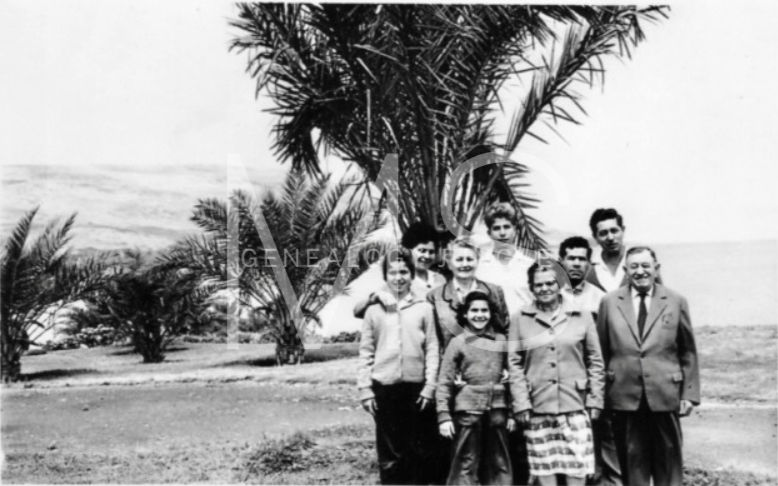
When they arrived, Rudi asked Yehuda how was he even considering letting his father go anywhere in his condition. Yehuda had no idea what was Rudi referring to, and was told only then that his father is suffering from colon cancer, which was neglected since his arrival to Israel. Yehuda returned to Dr. Fischer and confronted him for not revealing to him what his father’s diagnosis was, but Dr. Fischer replied that he assumed Yehuda knew what the papers he himself brought said.
Not long after, the doctor gave Arnold his blessing to take a trip to Europe. He left the Haifa port on the 12th of August 1962 and arrived to Venice on the 17th, then crossed the Austrian border at Villach on the 18th and went on to Vienna. Then, he crossed from Austria to Hungary at Bruckneudorf on the 20th of August 1962, and stopped for the border police at Hegyeshalom. This is what travel looked like before flights became affordable and the Schengen treaty made travel within Europe so easy.
After ten of the 13 Frank siblings already died - 3 in infancy, 4 in the holocaust, 2 in freak acceidents and one for medical reasons, Arnold visited his last two remaining siblings - Kornelia in Vienna and Artur in Budapest. On his way back he crossed the border in Hegyeshalom on the 13th of Oct, then went on the 15th via Bruckneudorf en route to Villach, crossed the Italian border and reached Venice, and then sailed on the 20th of October 1962 and returned to Israel via Haifa on the 26th of October 1962. From documentation (mainly Arnold’s Israeli Passport) - it seems like he didn’t succeed entering Slovakia. The Passport clearly says it is only valid for Hungary, Austria, Italy and France, and there are no stamps inside from Slovakia. However, there’s always a chance that the seemingly long stay in Hungary included an unlisted trip to Slovakia within the iron curtain.
In early 1963, Tamás received a phone call from his brother Yehuda in Israel, saying that their father was ill with cancer and wishes to see Tommy for the last time. Tamás said that he has a business trip planned to Milan, so he’ll use the opportunity and fly over to visit Israel for the first time. He asked Yehuda to come pick him up from the airport on a specific date they agreed on.
Yehuda, who worked as a bus driver for Egged, Israels main Bus company, arrived to the Ben Gurion airport as planned, a long drive from Sha’ar HaGolan, but his brother did not arrive. After Yehuda returned home, Tamás called and explained what delayed him, and promised to arrive on a different day instead. Disappointed, Yehuda told him that this time “call me from the airport and THEN I’ll head over to pick you up”, knowing full well that it would be a drive of a few hours.
Tommy did call when he arrived on the 19th March at 6am. Sadly, Yehuda told him that their father Arnold had passed away shortly before his call, and that his last words were “Why didn’t Tommy come?”. For Yehuda, this probably was a horrible closure with the father he always thought preferred Tommy anyways, while Tamás, unintentionally, repeatedly disappointed.
Either way, Tamás took a taxi to Sha’ar HaGolan, said his farewell to his father’s corpse, and attended the funeral.
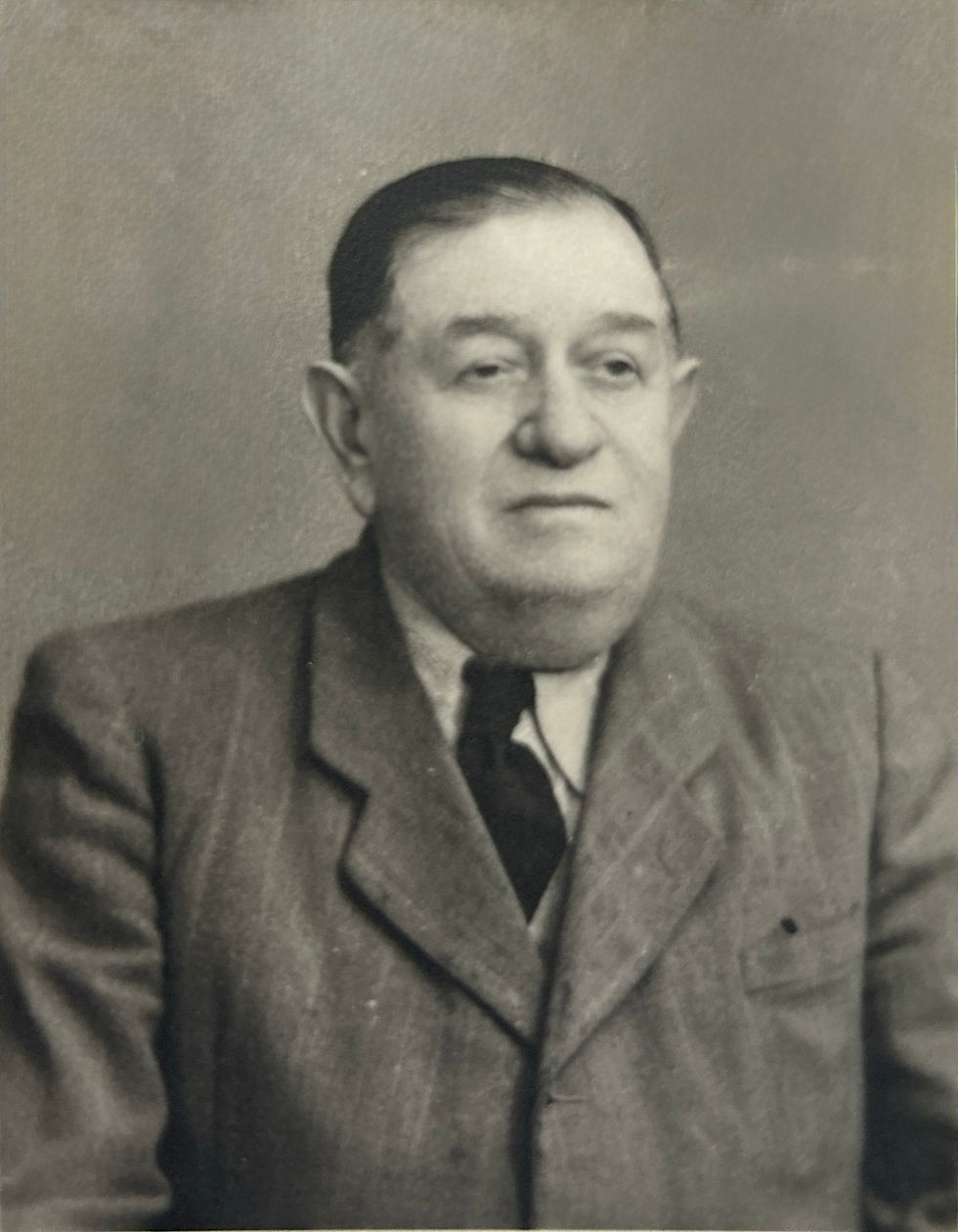
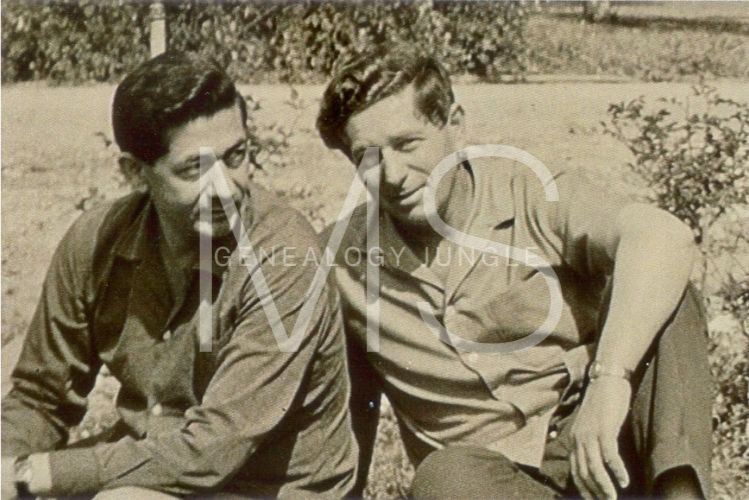
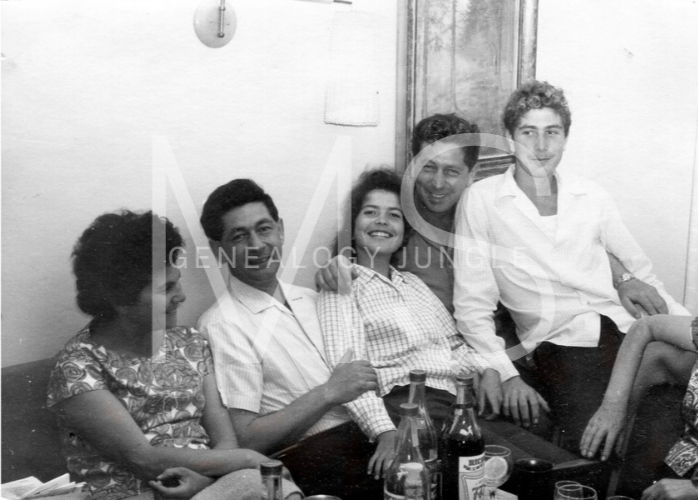
Naturally, this long awaited reunion of the two brothers for the first time since the beginning of WW2 was a bittersweet one. Part of this visit, on Tamás’ side (according to him), was to check for a possibility to immigrate with his wife to Israel and start a new chapter in their life there.
Shortly before Tamás left Brazil for Italy and Israel, Anikó became pregnant. In October 1963 their first daughter was born, and eventually, his plans to immigrate to Israel didn’t come to fruition. A second daughter was born four years later.
After a few years at Pirelli, Tamás received a promotion, which required the family to move to the city of Campinas, SP, as it would have been impossible for him to commute every day back and forth between the two cities.
It was important to him that his daughters get a good education. They were enrolled in a private school of American Christian Brothers called Notre Dame, and learned English as children.
Throughout their life in Brazil, Tamás and Anikó made several friends and were part of a Bridge Club in Campinas. Tamás also enjoyed spending time at the Hipica club during weekends, where he met friends, while the girls enjoyed the swimming pool.
Tamás never told his daughters about being a Holocaust survivor and never spoke with his wife or daughters about his experiences during the War. His daughters never knew he was Jewish, and knew very little of their father’s past. He also never told his brother anything about his experiences during the Holocaust. He only shared his stories with his parents, once, on the first time they met after the war, and they shared them with Yehuda.
In November 1979, Yehuda and his wife Shoshana visited Brazil and met Tamás' family for the first time.
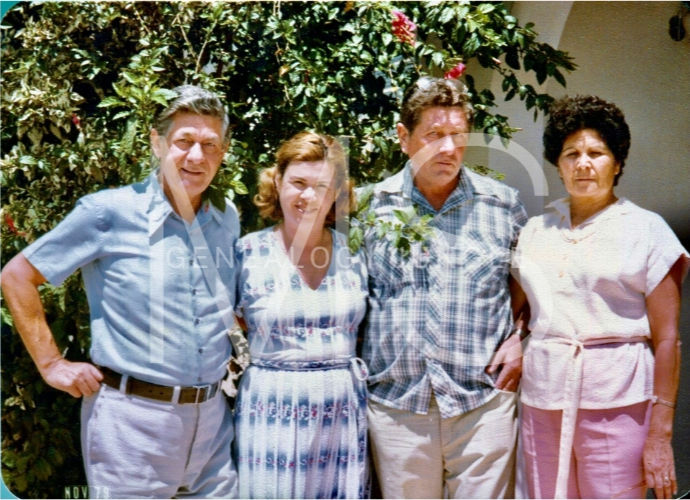
In December 1983 – January 1984, Tommy’s son and his wife visited Brazil from Hungary, and for the first time – all three of Tommy’s children met each other.
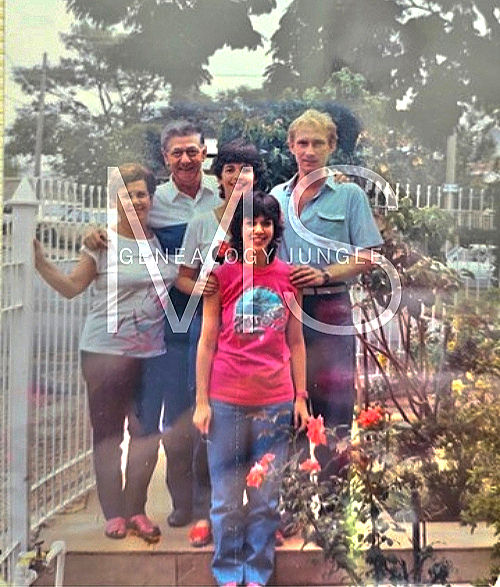
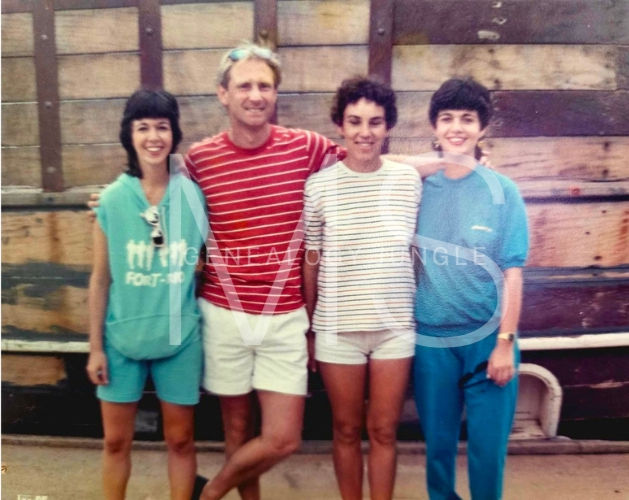
After many years in Pirelli, Tommy received another promotion which required him to work from the Sumare plant. He accepted the position, and the company provided transportation from Sumare to Campinas every day.
In 1988, while Tamás' nephew Amit (Yehuda’s son) did his Post-Doctoral research in the university of Heidelberg and lived for a year in Kleingemünd, Germany, Tamás and Anikó came to visit. Yehuda and Shoshana Frank also arrived from Israel, as did Tamás' son from Hungary with his wife.
During this visit, over rounds of the card game Buraco, Tamás (nicknamed Tommy within the family) shared for the first and only time, a few stories from the Holocaust and its repercussion with Amit's children (me and my sisters). One of these stories was the fore mentioned depiction of how he survived the death march and how complex it is, that not all nazi soldiers were monsters.
Another story was about his visit to Israel in 1963. During his visit, he traveled with Yehuda and his family around the north of Israel. When they visited Haifa, Yehuda arranged for them to eat in a famous Hungarian restaurant named “Balfour”, located in Balfour Street in Haifa. The place was packed, and the owner sat the Frank family at the Bar. When they sat down, the Bartender wouldn’t stop starting at Tamás, and eventually came over and asked, “Aren’t you Tamás Frank?”. When Tommy said it was indeed him, the bartender got very excited and said “I was with you in Mauthausen! You were dying of Typhus when the Americans arrived. I left the camp, and I was certain you had perished, but I now see that you’re alive and well!” The person was very enthusiastic, but Tommy remained aloof and distanced.
As soon as the bartender turned to serve other customers, Tommy nervously demanded to leave without finishing his meal. According to him, that was the moment he realized he could never immigrate to Israel, because if he lived there - he would constantly bump into people who would remind him of his war traumas, which he would not be able to endure.
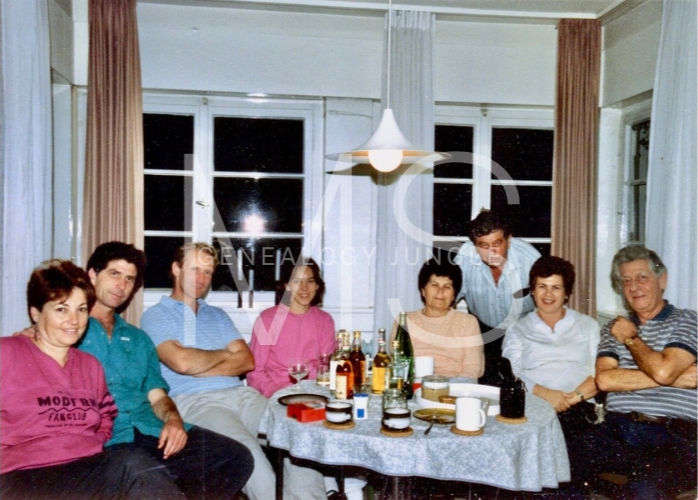
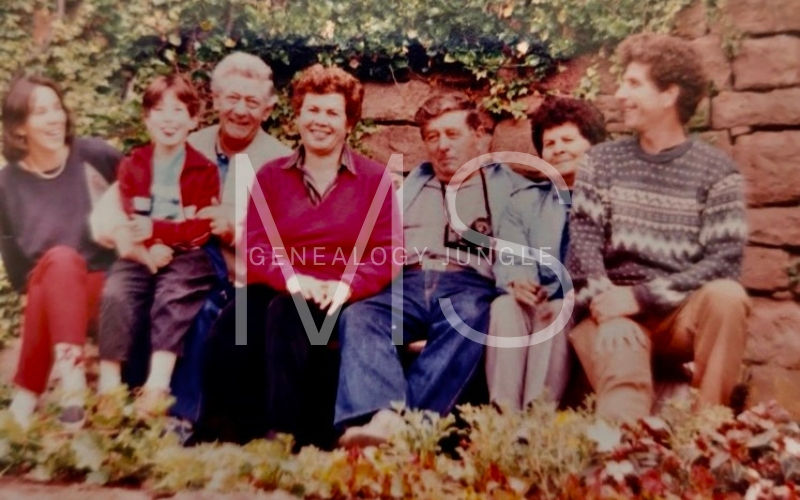
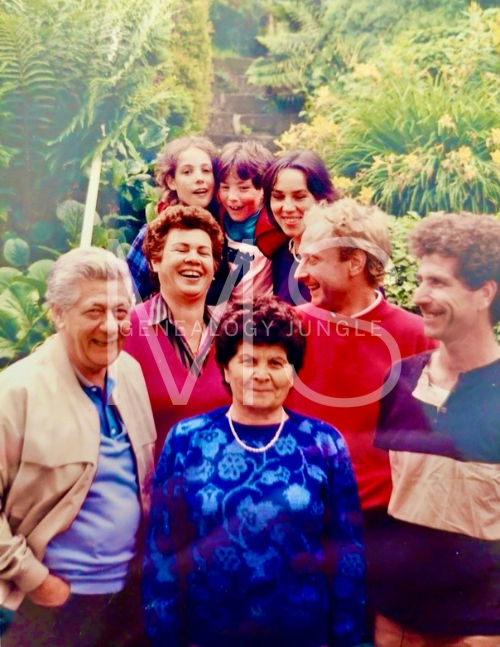
During their visit in Kleingemünd, Tamás and Yehuda tried locating their relative Karol Efraim Sidon, who was studying Jewish Studies in Heidelberg at the time. Sidon’s father was a brother of their aunt Adel Frank née Szidon (wife of their uncle Artur) and their uncle Maximilian Szidon (husband of their aunt Josefine Szidon nee Frank), and the ex-husband of their cousin Elisabeth Falk. They never met Karol Efraim, and were unsuccessful in tracing him.
After Germany, Tamás and Aniko, together with Yehuda and Shoshana, went on to Vienna to visit their cousin Manzi Ungar née Reich, to Bratislava to visit their cousins Klara Somogyi née Reich and Edith Polan née Schwitzer, and to Budapest, where Tamás met his grandchildren for the first (and only) time.
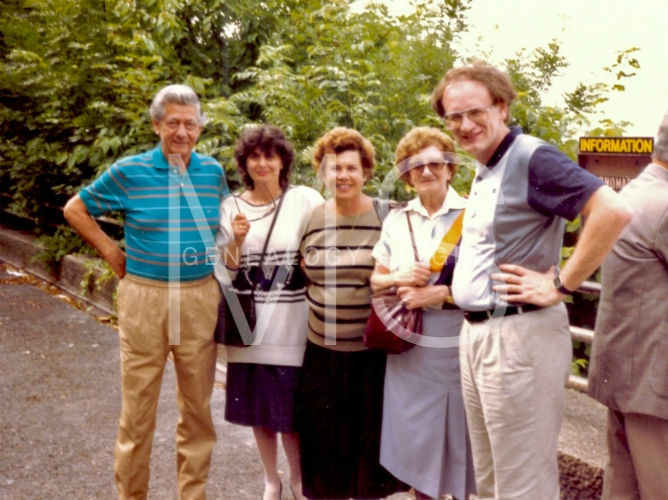
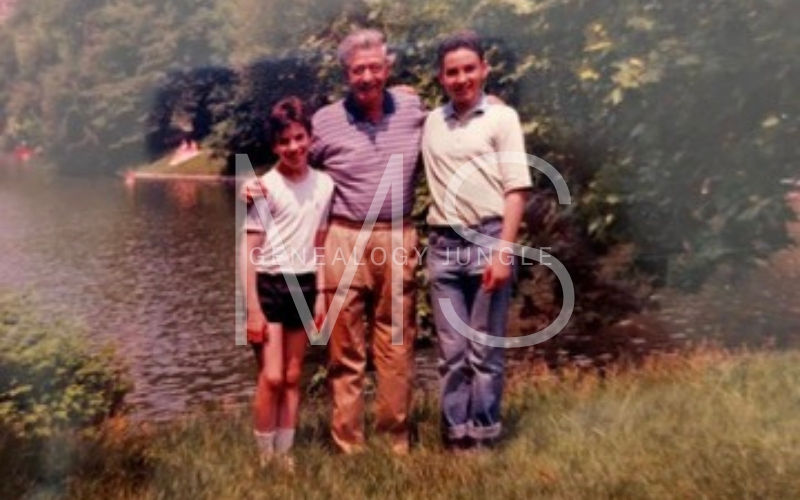
Tommy was a very warm and affectionate man and loved to hang out with the kids. His stories were fascinating, and Yehuda’s grandchildren enjoyed spending time with him. Soon after, in April 1988, Tamás’ grandson was born in Brazil, which excited him greatly. Every morning, before going to work, he would have his grandson sitting on his lap.
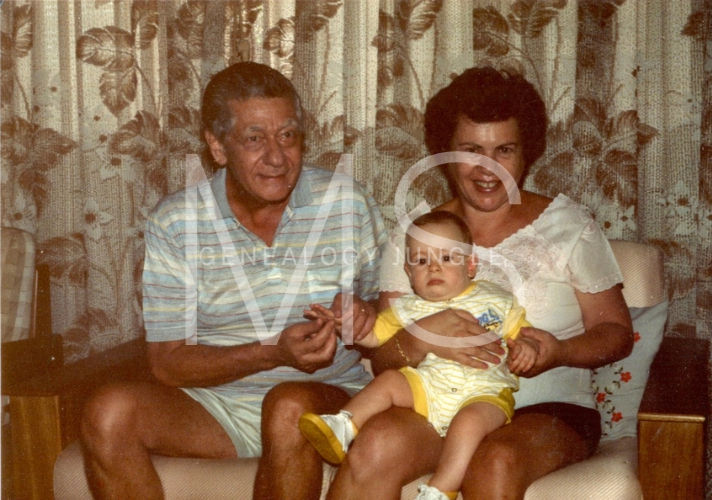
After almost 30 years of work for Pirelli, Tamás was excited for his upcoming retirement. He was looking forward to spending more time with his grandson and family. However, when he was diagnosed in early 1990 with an enlarged aorta, he was advised to go through an operation before his retirement, as his job benefit included a good medical insurance.
He decided to have a surgery to fix this condition, and since it was expected to be a relatively simple procedure, he didn’t expect anything to go wrong and didn’t even prepare a will in case anything would.
Unfortunately, the surgery did not go well. During it, Tamás suffered severe bleeding and eventually passed away. He died on the 9th of March 1990 in Campinas, São Paulo, Brazil and was buried there. His family was in complete shock and overwhelmed with sadness, as no one was mentally prepared for this outcome.
During his lifetime, Tamás lost his connection to the Jewish religion. Growing up in an assimilated, culturally Hungarian household in Slovakia, he was never observant. As a teenager he was an enthusiastic Zionist and dreamed of doing “Aliyah” - immigrating to Israel. However, living through the Holocaust severely affected his life’s course. Therefore, as a Holocaust survivor he chose to immigrate to the other side of the world and hide his Jewish past in his new surrounding in Brazil.
In our minds and hearts, Tommy will always be remembered kindly. We all cherish the good memories we created as a family spread over three continents.








Comments